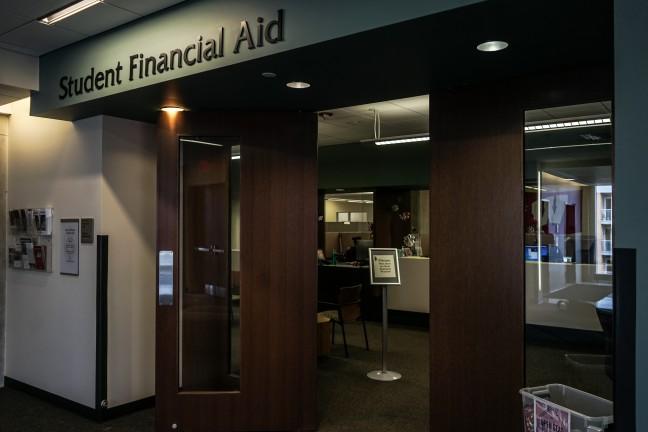The University of Wisconsin recently started distributing $28.6 million in emergency pandemic aid to students.
The money comes from the third round of the Higher Education Emergency Relief Fund in the American Rescue Plan Act Congress passed in March, which allotted UW $53.4 million in spending money.
UW is required to distribute at least $26.7 million directly to students for personal use, but decided to spend $900,000 more than that total on students.
In a press release, UW said the funds would be sent to “students facing the ongoing impacts of the COVID-19 pandemic,” with $7.7 million going directly to more than 6,500 high-need students whose financial needs are outlined in the Free Application for Federal Student Aid forms. Of those students, more than 4,600 were Federal Pell Grant recipients.
The remaining $19.1 million left over in the student fund is eligible for all UW students to receive through an emergency form where they can describe their reasons for needing extra money. This means the majority of money is easy for students to access, which can be good or bad, depending on how ethical the student body is.
As COVID-19 crisis increases wealth gap, WI must reform social welfare programs
Let’s not forget how important this money is for the 6,500 high-need students that immediately qualified through their FAFSA status. The COVID-19 pandemic made paying rent nearly impossible, and increased medical and living costs, crippling savings for the working class. The ARPA was in part designed to help college students pay for these costs as they attend university.
UW is accomplishing that goal for the 6,500 students that desperately need the money. These students get timely access to a few thousand dollars and can use it for anything from tuition to personal costs.
Even in the “all students” bracket, UW is helping many students who aren’t in the high-need bracket but still face financial difficulties. The middle class tends to fall short of qualifying for financial aid through FAFSA, despite being unable to keep up with the nearly 25% increase in tuition costs over the past ten years, and the openness of this fund changes that.
In this sense, it’s also easier for international or undocumented students to access funds quickly, which is rare, as FAFSA requires correspondence with the government. The Office of Student Financial Aid Communications Manager Karla Weber Wandel said all students who submitted applications to the open fund received money.
“We’ve been able to provide some emergency grant to each student that has made a request,” Wandel said. “Students get to choose if they want these funds applied to their student account balance or if they want the amount directly refunded to them.”
Silent Crisis: How small business foreclosures spell disaster for the US
These payments are a glimpse at universal basic income proposals popularized by former presidential candidate Andrew Yang. All students are afforded a base-level financial safety net while some less affluent ones are given additional support.
The emergency pandemic aid marks UW’s first major step towards equity that universities often fail to achieve, despite groups like Associated Students of Madison previously calling for an expanded and more consistent student payment system.
But, the easy access to this aid also has its downsides. The emergency request form only requires that students create an itemized list of their financial needs, followed by a “brief statement explaining your current financial emergency.” There’s also a short survey students must fill out, which includes vague statements such as “concerned about covering future expenses.”
As a public school, UW has minimal data on its students who don’t need financial aid and don’t fill out the FAFSA form when they apply to the school. This leaves the Office of Student Financial Aid with a mere paragraph to determine if a student should receive money that a financially desperate student could use to avoid eviction or pay for critical medicine.
While it’s not immediately possible to prove that some students are lying on their emergency request forms to receive money they don’t necessarily need, it’s conceivable these students are potentially using money the university could set aside for others with serious financial difficulties.
A recent example of government money finding its way to the rich is the Coronavirus Aid, Relief and Economic Security Act. Small, minority-owned businesses had trouble accessing the Paycheck Protection Program while massive chain restaurants — like Ruth’s Chris or Shake Shack — could easily take money from the fund. The Act also provided far more than the $1,200 each American received to millionaires and billionaires through tax breaks.
American Rescue Plan shows hope as the country reaches one year of a pandemic
Calling for a UW surveillance campaign to determine a student’s real financial status would only prohibit some students in that middle class category from receiving needed money. Instead, a more rigorous vetting process for students to receive this money would ensure fluffy wording doesn’t open the door for them to receive money they might not need.
Direct financial aid can be an equitable opportunity to support both working and middle class students through easy access to money. In the future, UW needs to establish a more robust way to determine who gets these funds.
Students not in the high-need bracket should have to show up for in-person interviews and outline a spending plan for their funds. Or, students could be required to reveal a partial picture of their financial status to apply for these funds. These policies would discourage any wealthy students who may be looking to take advantage of the situation from doing so.
In a perfectly moral society, we wouldn’t have to worry about students taking money they don’t need. But, if the pandemic has proved anything, it’s that people are flawed.





















